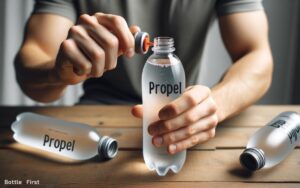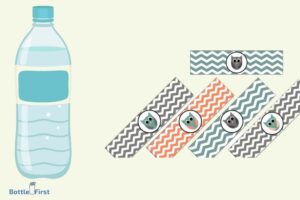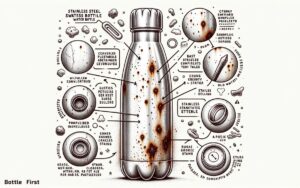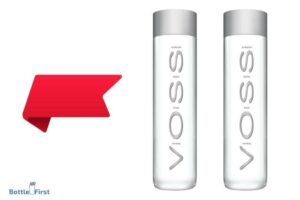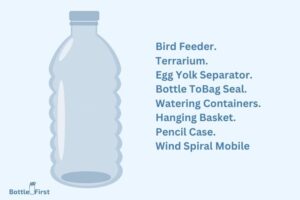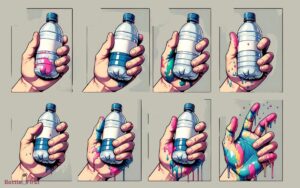Can You Get Covid from Sharing a Water Bottle? Yes!
Yes, you can potentially get COVID-19 from sharing a water bottle if the person you are sharing it with is infected.
COVID-19 primarily spreads through respiratory droplets, which are produced when an infected person talks, coughs, or sneezes. If these droplets land on surfaces like a water bottle and you touch the surface then touch your face, you can be infected.
Moreover, if you drink directly from a water bottle that an infected person used, you are potentially taking in the virus directly.
While the main mode of COVID-19 transmission is through respiratory droplets, it’s important to remember that shared objects can also play a role in the spread.
The virus can live on surfaces like stainless steel or plastic, which are often the materials used for reusable water bottles.
If someone infected with the virus drinks from a water bottle and leaves virus particles on it, these can be transferred to the next person who uses the bottle.
Therefore, it is advisable to avoid sharing items such as water bottles, especially in these times.
Remember, the best defense against COVID-19 is good hygiene practices – washing your hands with soap and water or using hand sanitizer, not touching your face, and maintaining social distancing. In all cases, it is essential to prioritize personal hygiene and safety.
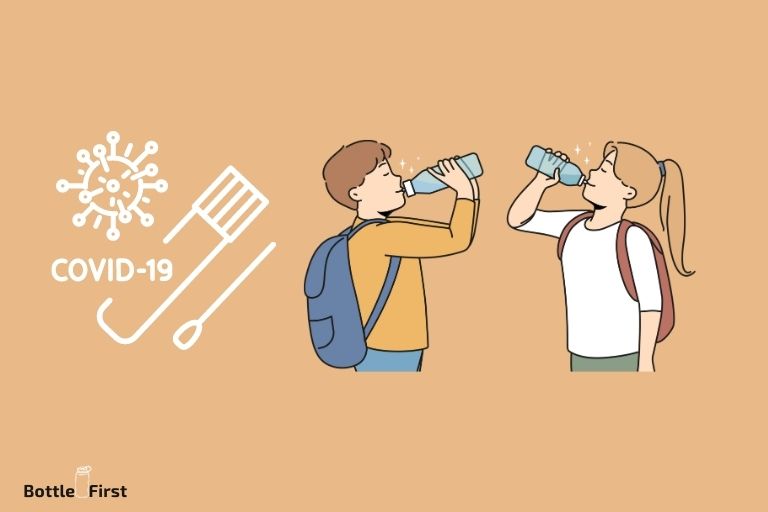
Key Takeaway
4 Factors: You Can Get Covid From Sharing A Water Bottle
| Factors | Explanation |
|---|---|
| Direct Contact | Sharing a water bottle can lead to direct contact with saliva which may contain the virus if the person is infected. |
| Surface Contamination | The virus can survive on surfaces for hours to days. If an infected person touches the water bottle and you use it afterwards, there is a chance of infection. |
| Prevention | To prevent transmission, it is advised not to share personal items like water bottles. Maintaining proper hygiene like washing hands regularly can reduce the risk. |
| Risk Level | Although the primary mode of Covid-19 transmission is through respiratory droplets when an infected person coughs or sneezes, the risk of getting Covid-19 from sharing a water bottle cannot be completely ruled out. |
Exploring The Risks Of Sharing Personal Items During The Pandemic
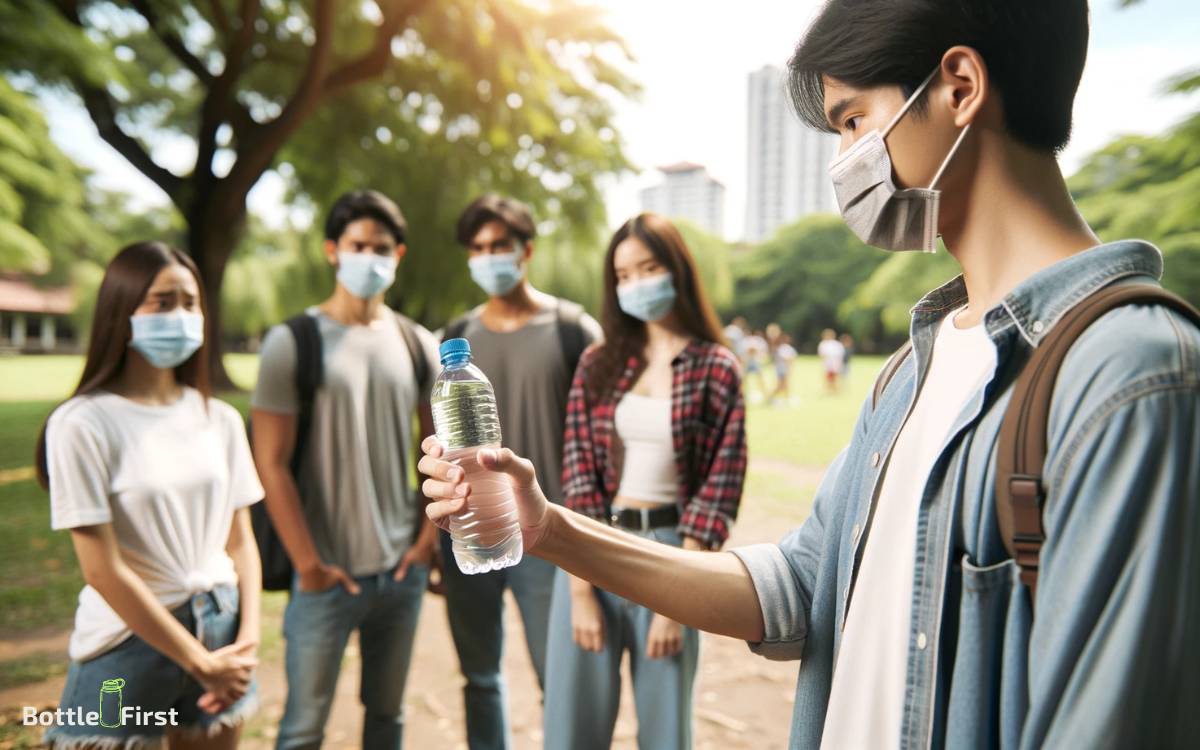
During the ongoing covid-19 pandemic, it’s essential to be aware of the potential risks associated with sharing personal items, such as water bottles. While it may seem innocent enough, sharing personal items can increase the chances of virus transmission.
Importance Of Personal Hygiene Practices
Practicing good personal hygiene is crucial in preventing the spread of covid-19.
Here are some key points to remember:
- Regularly wash your hands with soap and water for at least 20 seconds, especially before eating or drinking.
- Use hand sanitizers containing at least 60% alcohol when soap and water are not readily available.
- Avoid touching your face, particularly your mouth, nose, and eyes, as the virus can enter your body through these openings.
- Wear a mask when social distancing is not possible, particularly in crowded places or when interacting with individuals who may be infected.
- Cover your mouth and nose with a tissue or your elbow when coughing or sneezing, and dispose of used tissues immediately.
Risks Of Sharing Personal Items
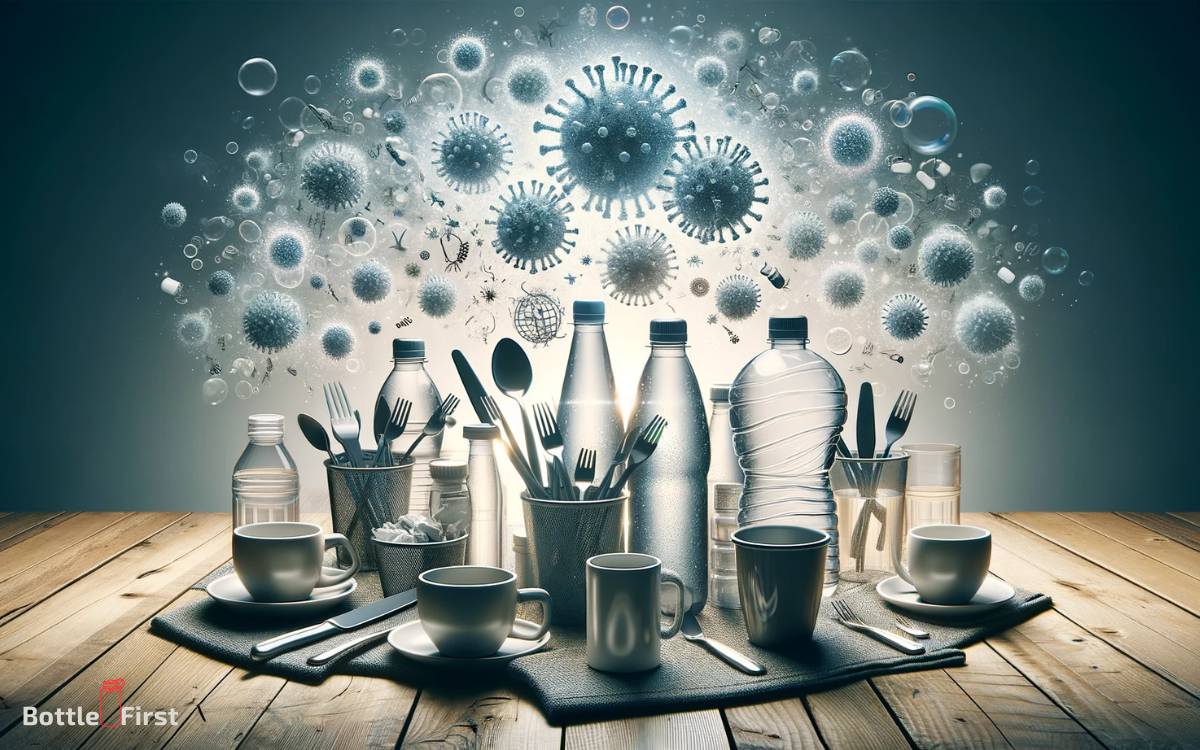
Sharing personal items, including water bottles, can increase the likelihood of transmitting covid-19.
Consider the following factors:
- Direct contact with saliva: When sharing a water bottle, there is a risk of saliva contamination. If an infected person has used the bottle, the virus may be present on the surface and can potentially infect others.
- Lack of hand hygiene: Not everyone follows proper hand hygiene practices. If someone touches their face or sneezes into their hands before touching a shared item, they can transfer the virus to the next person who touches the item.
- Asymptomatic carriers: Some individuals infected with covid-19 may not display any symptoms. They can unknowingly pass on the virus by sharing personal items, even if they appear healthy.
Precautions To Take
To minimize the risk of covid-19 transmission while using personal items, consider these precautions:
- Avoid sharing personal items whenever possible: It is best to refrain from sharing items like water bottles to reduce the risk of virus transmission.
- Use disposable options: If sharing is unavoidable, opt for disposable cups or straws that can be discarded after use.
- Clean and disinfect regularly: If sharing is necessary, ensure proper cleaning and disinfection of the item before and after each use.
- Personalized identification: Label your personal items to avoid mix-ups and accidental sharing.
- Vaccination and regular testing: Encourage individuals to get vaccinated to protect themselves and others against covid-19. Regular testing can help identify asymptomatic carriers and prevent further transmission.
Sharing personal items, including water bottles, can pose a risk of covid-19 transmission.
By practicing good personal hygiene habits and taking necessary precautions, we can minimize the chances of spreading the virus and protect ourselves and those around us.
Stay safe and prioritize your health during these challenging times.
The Viability Of Covid-19 Transmission Through Water Bottles
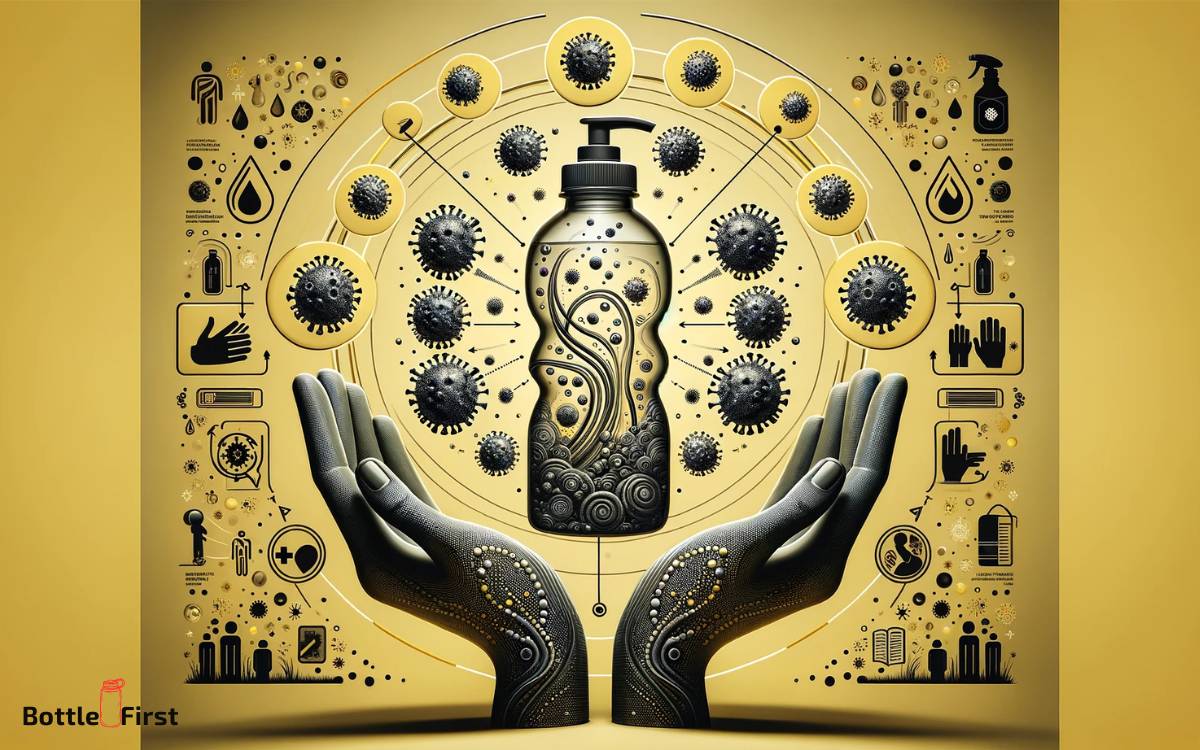
Sharing water bottles has long been a common practice, whether it’s between friends at the gym or teammates on the field.
But with the ongoing covid-19 pandemic, it’s natural to wonder if this seemingly innocent act could potentially lead to exposure.
Analyzing The Survival And Transmission Of The Virus On Different Surfaces:
- Covid-19 is primarily spread through respiratory droplets expelled when an infected person coughs, sneezes, talks, or breathes heavily. However, studies have shown that the virus can also survive on surfaces for varying periods, depending on multiple factors such as temperature, humidity, and surface material.
- The survival time of the virus on inanimate surfaces like plastic, which is often used in water bottles, can range from a few hours to several days. It’s important to note that the viability of the virus decreases over time.
- While viable virus particles have been detected on surfaces, it is crucial to understand that the presence of the virus does not necessarily equate to infection. The amount of virus present and the length of exposure play a significant role in determining the risk of transmission.
Evaluating The Risk Of Contamination On Water Bottle Surfaces:
- When it comes to water bottles, the risk of covid-19 transmission through surface contamination is generally considered to be low. This is due to several factors, including the dilution effect of water and the lack of conducive conditions for the virus to survive and replicate.
- The act of drinking directly from a water bottle decreases the risk of transmission further, as the act of ingestion bypasses the respiratory system. Additionally, saliva contains enzymes that can neutralize the virus before it has a chance to infect.
- However, it’s still important to practice good hygiene habits. Cleaning your water bottle regularly with soap and water or disinfectants can help minimize any potential risk of contamination.
- If you are sharing a water bottle with someone who is infected or showing symptoms, it is advisable to avoid doing so to reduce the risk of transmission. It’s always better to err on the side of caution, especially in situations where there is a higher prevalence of cases or if you or someone close to you is at a higher risk of severe illness.
While the virus can potentially survive on water bottle surfaces, the risk of covid-19 transmission through this mode is relatively low.
Practicing good hygiene by cleaning your water bottle regularly and avoiding sharing with infected individuals can further mitigate any potential risk.
Remember, it’s crucial to stay informed about the latest guidelines from health authorities and make decisions based on reliable information to ensure your safety and the safety of those around you.
Stay hydrated and stay safe!
Assessing The Transmission Risk Factors Involved
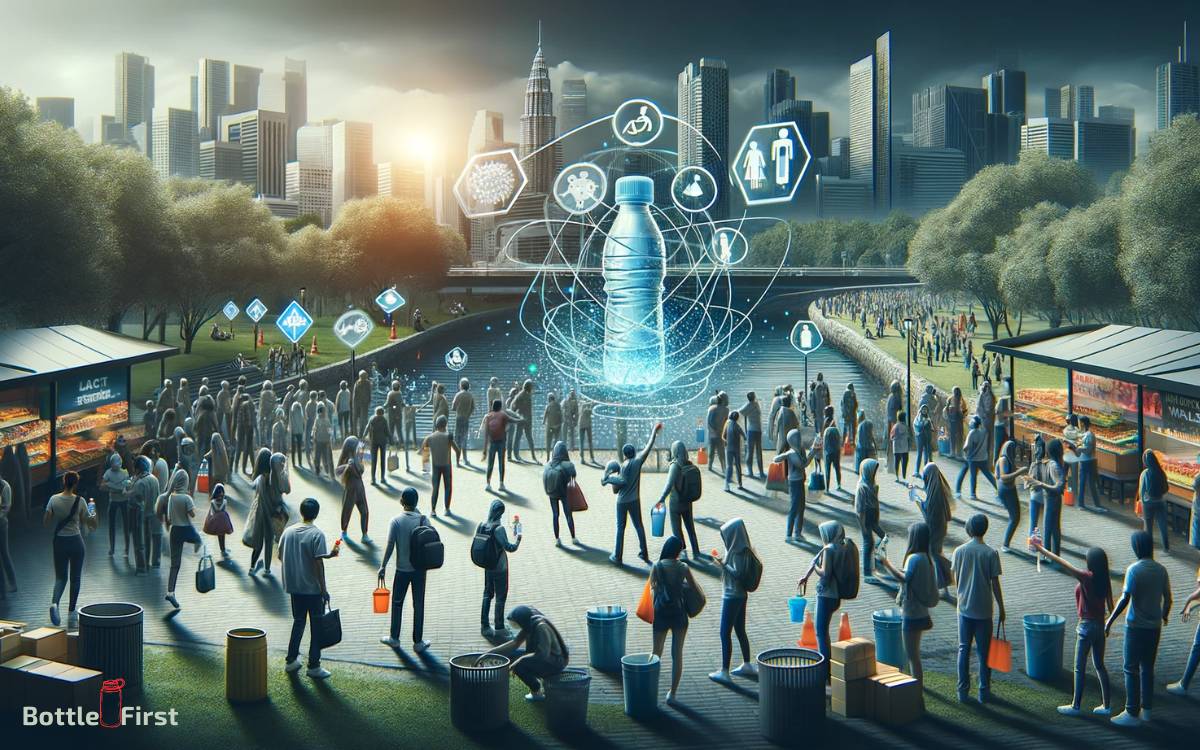
Contracting the covid-19 virus has been a major concern since the onset of the pandemic. With a multitude of transmission routes, it’s important to evaluate the risk factors associated with everyday activities, such as sharing a water bottle.
Examining The Characteristics Of Covid-19 That Make Transmission Possible Through Sharing Water Bottles
Covid-19 is primarily transmitted through respiratory droplets expelled from an infected person’s nose or mouth. However, considering the unique nature of the virus, it is crucial to be aware of other potential modes of transmission.
Here are some key points to consider:
- Viability on surfaces: Studies have shown that the coronavirus can survive on various surfaces, including plastic, for a certain period of time. It is possible for the virus to remain on a shared water bottle and potentially infect someone who comes into contact with it.
- Contamination through saliva: When sharing a water bottle, there is a potential for saliva exchange, either directly or indirectly. Since saliva can contain the virus if the person is infected, this poses a risk of transmission.
- Lack of proper disinfection: If a shared water bottle is not cleaned and disinfected regularly, any potential virus present on its surface can persist and be transmitted to others who use the bottle.
Identifying The Potential Routes Of Transmission
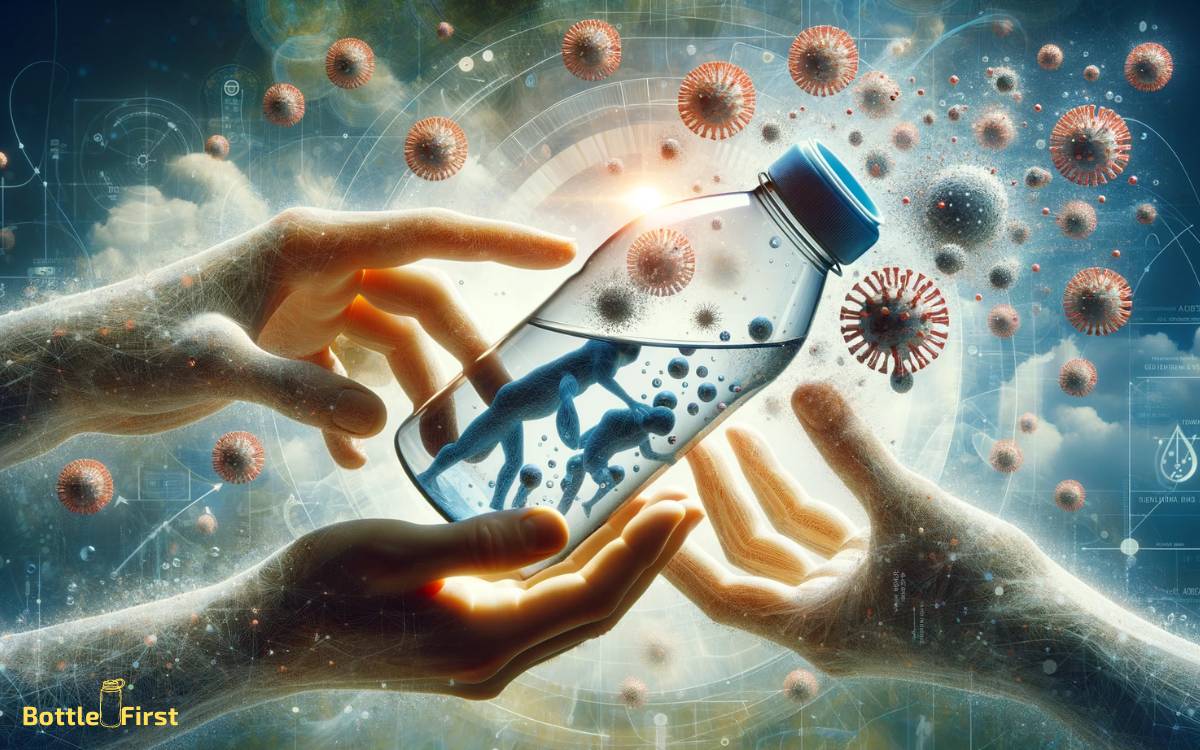
While the primary route of covid-19 transmission remains respiratory droplets, other routes should not be neglected.
Here are some potential avenues through which transmission could occur:
- Direct transfer through mouth contact: If an infected person drinks from a water bottle and then passes it to another person who drinks from the same spot, direct transfer of the virus may happen.
- Indirect contact through contaminated hands: Handling a contaminated water bottle and subsequently touching one’s face, specifically the mouth or nose, can lead to transmission of the virus.
- Cross-contamination via surface contact: If an infected individual touches their mouth or nose and then touches the water bottle, the virus could be transferred to the bottle. Subsequent contact by a healthy individual with the contaminated surface could result in transmission.
- Aerosol transmission: It’s important to note that aerosol transmission, while less common than respiratory droplet transmission, can potentially occur in enclosed spaces where the virus particles can remain suspended in the air for longer periods of time.
By understanding these potential modes of transmission, we can take necessary precautions to minimize the risk of contracting covid-19 while sharing water bottles.
Regular disinfection, avoiding direct mouth contact with the bottle, and practicing good hand hygiene are effective measures to mitigate transmission risks.
Stay informed, stay safe, and make well-informed choices in your daily activities.
Expert Opinions On Sharing Water Bottles And Covid-19 Transmission
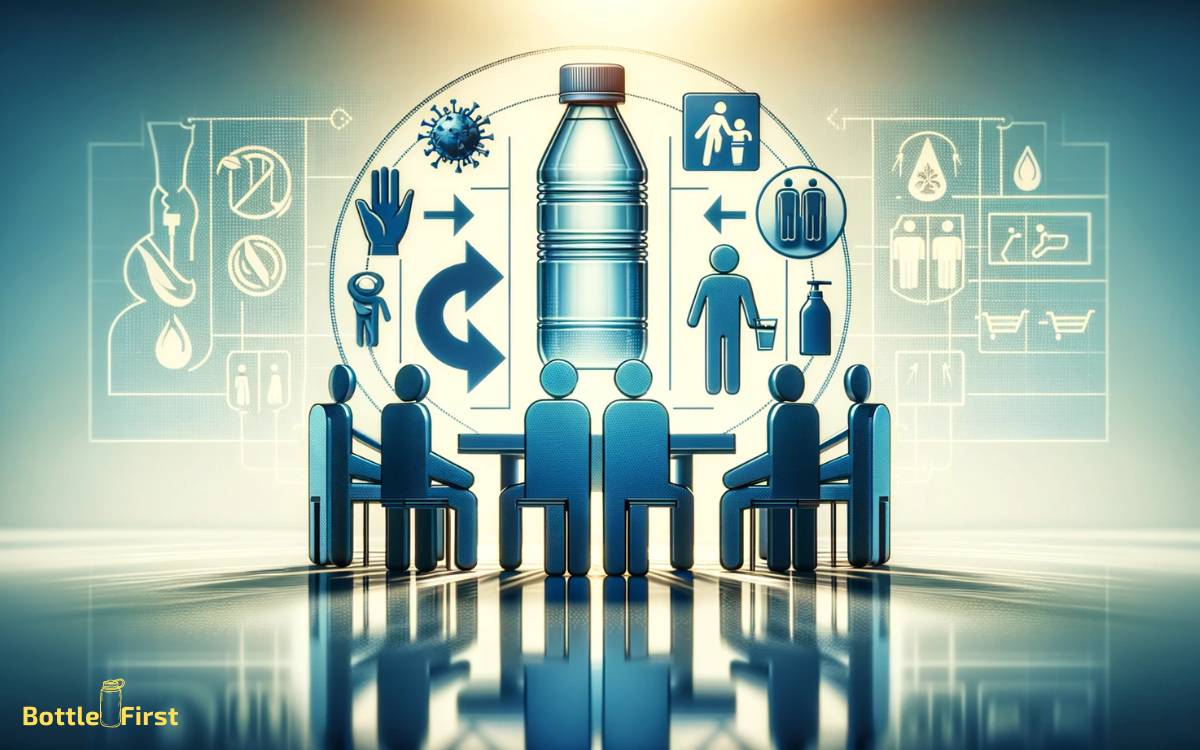
Sharing a water bottle is a common practice among athletes, friends, and family members. However, in the midst of a global pandemic like covid-19, it is crucial to consider the potential risks involved.
Can you contract the virus by sharing a water bottle?
Let’s delve into the expert opinions on this matter and gain a better understanding of the scientific rationale behind their viewpoints.
Reviewing Insights From Health Experts On The Likelihood Of Transmission Through Water Bottle Sharing
- Limited risk of direct transmission: According to health experts, the risk of contracting covid-19 through sharing a water bottle is relatively low. The virus primarily spreads through respiratory droplets, making direct transmission through shared surfaces less likely.
- Indirect transmission possibility: While the direct risk may be low, it’s essential to acknowledge the potential for indirect transmission. If an infected person drinks from a water bottle, their respiratory droplets may contaminate the bottle’s surface.
- Implementing preventive measures: Experts emphasize the importance of adopting preventive measures to reduce the risk of transmission. These include:
- Personal water bottles: Encouraging individuals to bring their own water bottles and avoid sharing altogether can significantly decrease the chances of indirect transmission.
- Thorough cleaning and disinfection: If sharing becomes inevitable, it is crucial to thoroughly clean and disinfect the water bottle between uses. Using soap and warm water or an alcohol-based solution can effectively eliminate any potential viral particles.
- Maintaining good hand hygiene: Practicing proper hand hygiene by washing hands with soap and water for at least 20 seconds or using hand sanitizer can further reduce the risk of transmission.
- Contextual factors: The likelihood of transmission may also depend on contextual factors such as the prevalence of the virus in a particular community or region. It is important to stay updated on local health guidelines and regulations regarding social interactions and shared objects.
Understanding the insights provided by health experts helps establish a clearer picture of the risks associated with sharing a water bottle during the covid-19 pandemic.
While the direct risk may be relatively low, it is crucial to prioritize preventive measures to avoid potential indirect transmission.
By implementing personal water bottles, practicing thorough cleaning and disinfection, and maintaining good hand hygiene, individuals can minimize the risk of contracting the virus while still enjoying their hydration needs.
Stay informed, cautious, and prioritize the health and safety of yourself and those around you.
Best Practices To Minimize The Risk Of Covid-19 Transmission
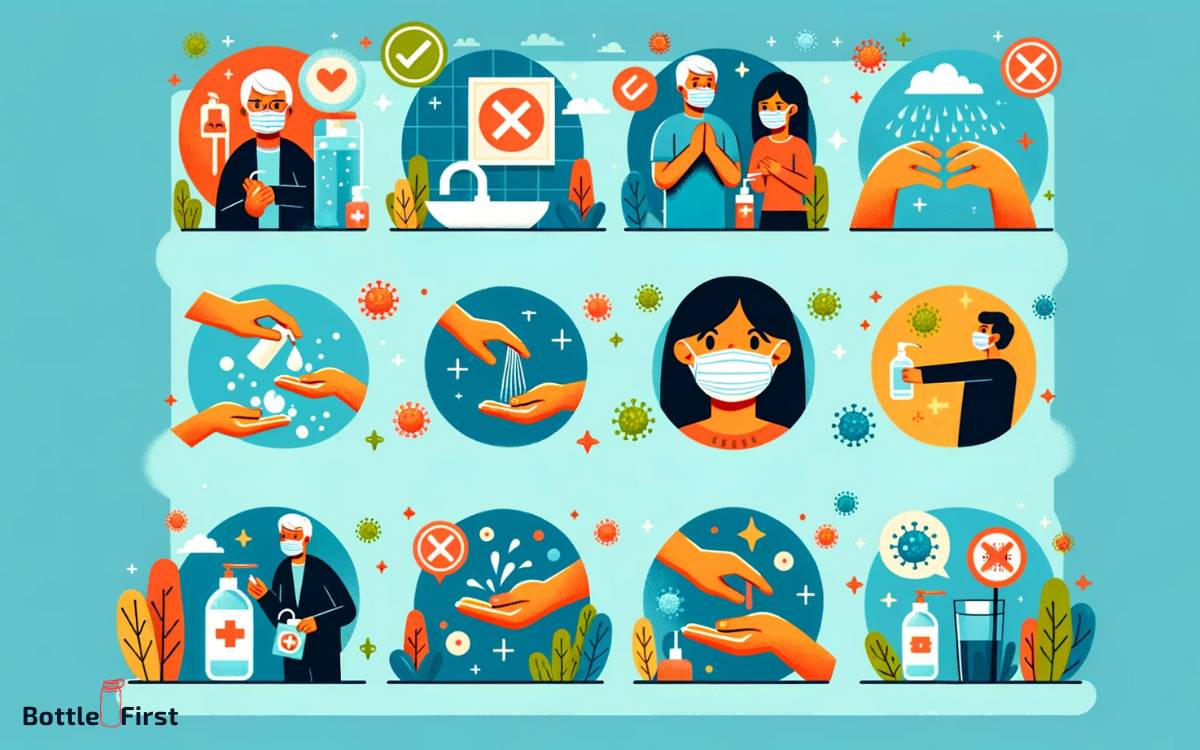
Sharing water bottles has always been a common practice among friends, family, and colleagues. However, with the ongoing pandemic, the question arises: can you get covid from sharing a water bottle?
While the risk of transmission is low, it is still important to take certain precautions to minimize any potential risk.
Promoting Individual Responsibility And Hygiene Habits As Crucial Components Of Prevention
- Wash your hands: Before and after sharing a water bottle, make sure to wash your hands thoroughly with soap and water for at least 20 seconds. This simple act can significantly reduce the risk of transmission.
- Use hand sanitizers: If soap and water are not readily available, use an alcohol-based hand sanitizer with at least 60% alcohol content. Apply it to your hands and rub them together until they are dry.
- Bring your own water bottle: The safest option is to bring your own water bottle and avoid sharing altogether. This way, you eliminate the risk of potential exposure.
- Avoid touching your face: During the exchange of a water bottle, it is essential to refrain from touching your face, particularly your eyes, nose, and mouth. These areas serve as entry points for the virus.
- Clean the water bottle regularly: If sharing a water bottle is unavoidable, ensure that it is properly cleaned and sanitized before and after use. Use hot water and soap or a disinfectant solution to clean the bottle thoroughly.
- Use disposable cups or straws: Instead of directly drinking from the bottle, consider using disposable cups or straws. This helps minimize contact and reduces the risk of transmission.
- Practice social distancing: Maintain a safe distance of at least six feet from others while sharing a water bottle. This reduces the chances of respiratory droplets coming into contact with you.
- Stay updated with guidelines: Stay informed about the current guidelines and recommendations from reputable health organizations, such as the world health organization (who) and the centers for disease control and prevention (cdc). These guidelines provide valuable insights into the best practices for minimizing the risk of covid-19 transmission.
- Monitor for symptoms: Even with precautions in place, it’s crucial to monitor yourself and those you’ve shared a water bottle with for any symptoms of covid-19. If any symptoms arise, it is recommended to seek medical advice and get tested.
By following these preventive measures, you can enjoy the social aspect of sharing a water bottle while reducing the risk of covid-19 transmission.
Remember, individual responsibility and hygiene habits play a crucial role in keeping yourself and others safe during these challenging times.
Stay informed, be proactive, and prioritize your health and well-being.
Conclusion
The risk of contracting covid from sharing a water bottle is low but not zero. While the virus primarily spreads through respiratory droplets, it can also survive on surfaces for a period of time.
Sharing a water bottle can potentially transfer the virus if an infected person has recently used it.
However, practicing good hygiene, such as washing the water bottle thoroughly or using separate bottles, can help minimize the risk.
It is also important to consider the context, such as the prevalence of cases in your area and the vaccination status of individuals involved.
Ultimately, it is always better to prioritize your health and take precautions when sharing personal items.
By remaining informed, exercising caution, and following guidelines from health authorities, we can protect ourselves and others from the transmission of covid-19.
FAQ About You Can Get Covid From Sharing A Water Bottle
Can You Get Covid From Sharing A Water Bottle?
No, covid does not spread through sharing a water bottle. It primarily spreads through respiratory droplets.
Can you get COVID-19 from sharing a water bottle?
The risk of COVID-19 transmission through sharing a water bottle is considered low. The virus primarily spreads through respiratory droplets when an infected person coughs, sneezes, talks, or breathes
What are the main modes of COVID-19 transmission?
COVID-19 is mainly spread through close person-to-person contact, particularly in indoor settings. Respiratory droplets containing the virus can be inhaled by others nearby.
What precautions should I take when sharing items during the pandemic?
It’s a good idea to avoid sharing personal items, including water bottles, during the pandemic. If sharing is necessary, it’s best to clean and disinfect the item before and after use.

